Blogs

What Is Sterile Processing: The Unsung Hero of Healthcare Safety
At the heart of any healthcare facility, infection control protocol lies a pivotal yet often underappreciated process: sterile processing. This essential procedure ensures that all medical instruments and equipment are thoroughly decontaminated, sterilised, and ready...
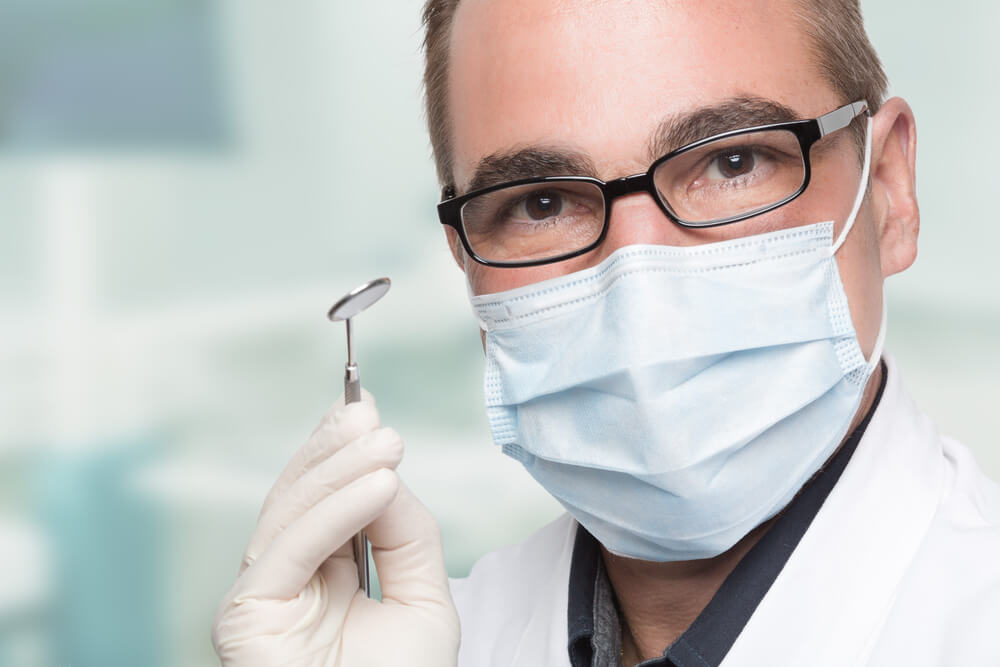
Ethylene Oxide Sterilization: Ensuring Safety and Efficacy in Medical Equipment Processing
Ethylene oxide sterilisation stands as a cornerstone in the medical device sterilisation processes, offering a highly effective method for ensuring the safety and usability of a wide range of medical devices. This article delves into the intricacies of ethylene oxide...
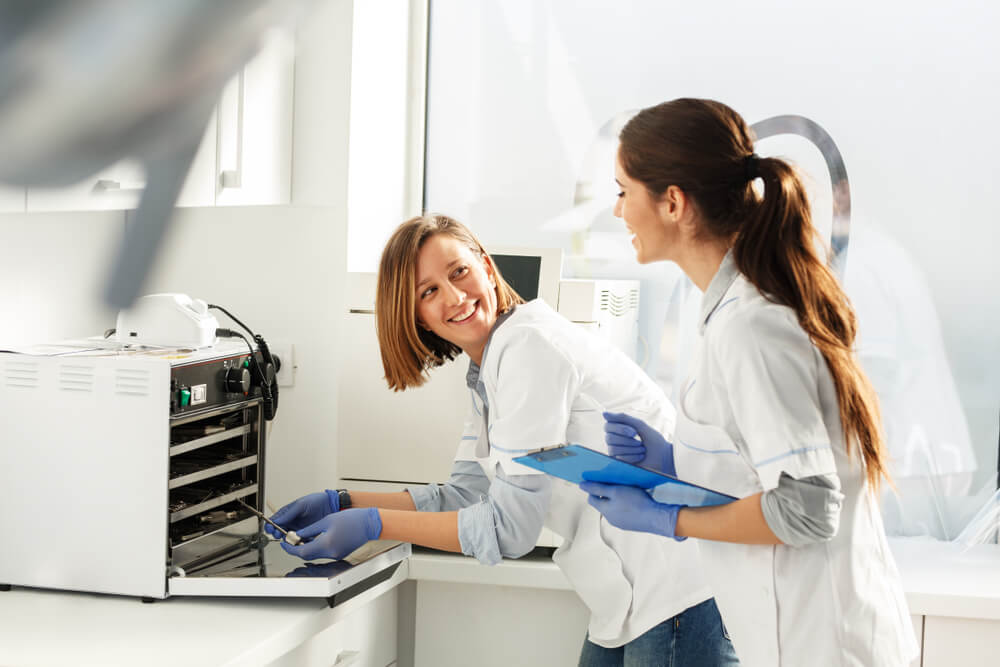
Sterilisation Equipment: Ensuring a Clean and Safe Environment
Sterilisation equipment plays a pivotal role in ensuring the safety and well-being of individuals within diverse settings, from healthcare facilities to research laboratories. As a cornerstone of effective infection control, this advanced machinery guarantees the...
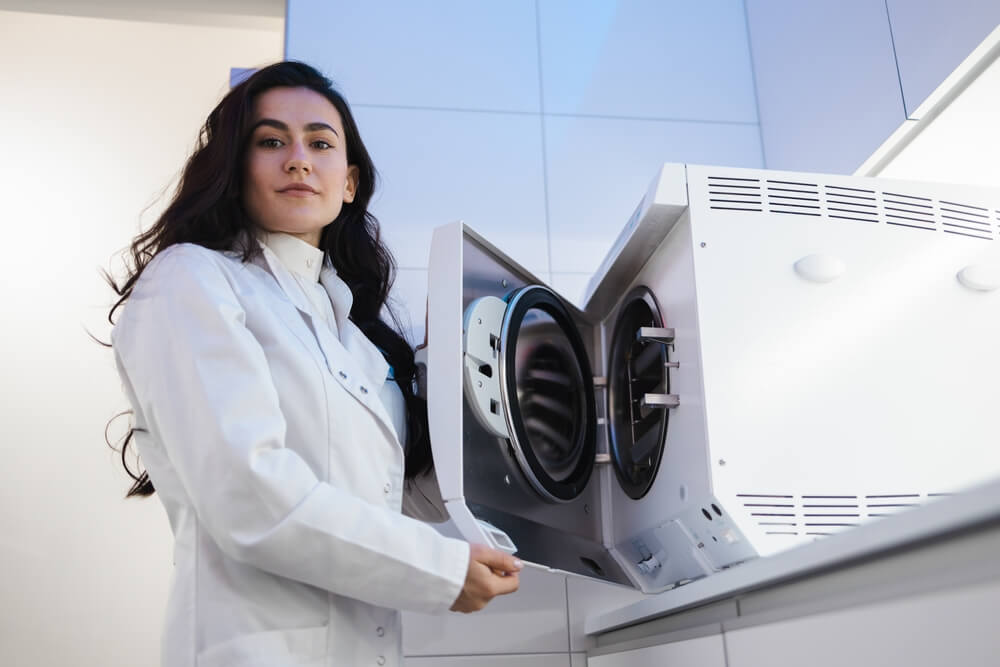
At What Temperature Does an Autoclave Require 15-20 Minutes to Sterilize
Are you interested in exploring the optimal conditions for autoclave sterilisation? Have you ever wondered at what temperature does an autoclave require 15-20 minutes to sterilize effectively? This article delves into this precise question, providing valuable insights...
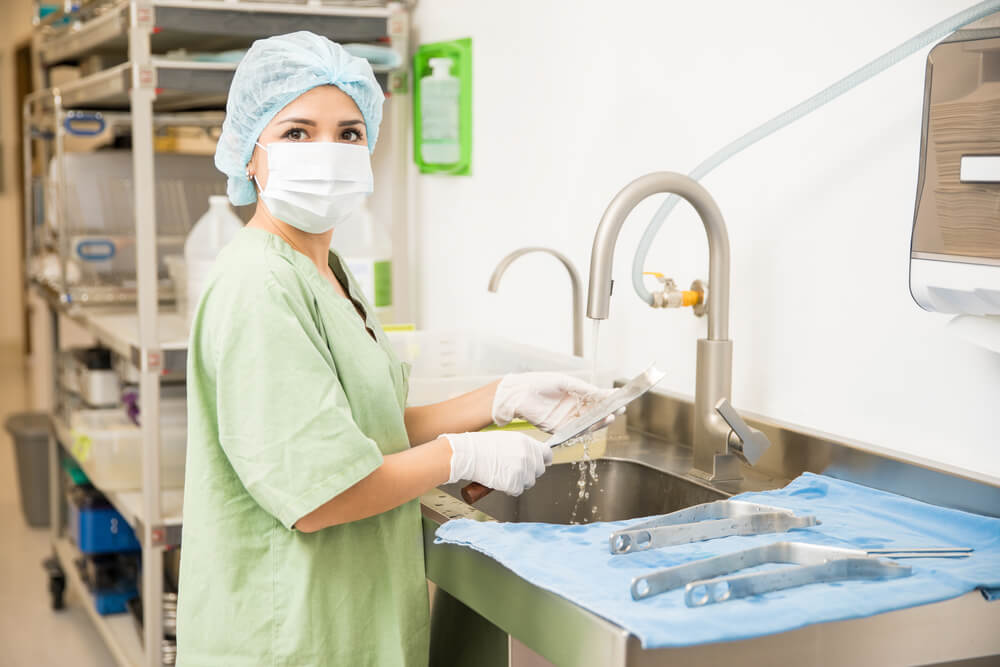
Disinfection vs Sterilisation: Understanding the Key Differences
As our world continues to face unprecedented challenges in maintaining cleanliness and preventing the spread of harmful pathogens, the terms "disinfection" and "sterilisation" have become increasingly essential. Distinguishing between these two pivotal practices is...

Autoclave Validation to Ensure Efficacy
In medical and laboratory settings, ensuring the sterility of equipment is paramount. One of the primary tools in achieving this is the autoclave. But how can we be certain that this machine performs its job effectively? Enter the world of autoclave validation. This...
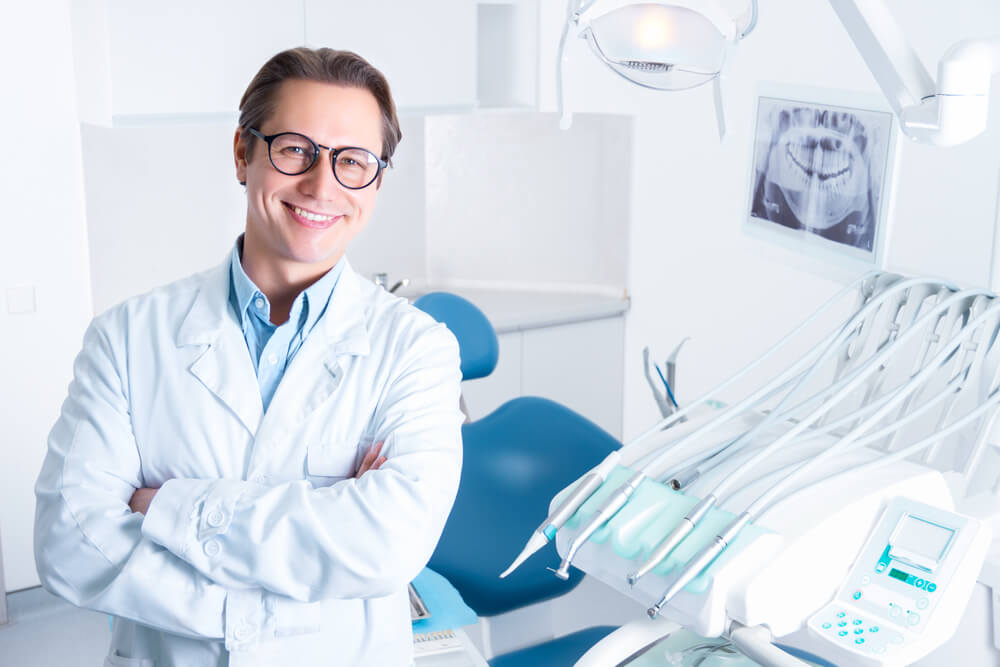
Leak Rate Test Autoclave: Ensuring the Integrity of Sterilisation Equipment
In the realm of medical and laboratory equipment, ensuring sterilisation is paramount. Enter the leak rate test autoclave, a pivotal process that might sound intricate to the uninitiated. But why is this test so integral to the world of autoclaves, and what makes it a...
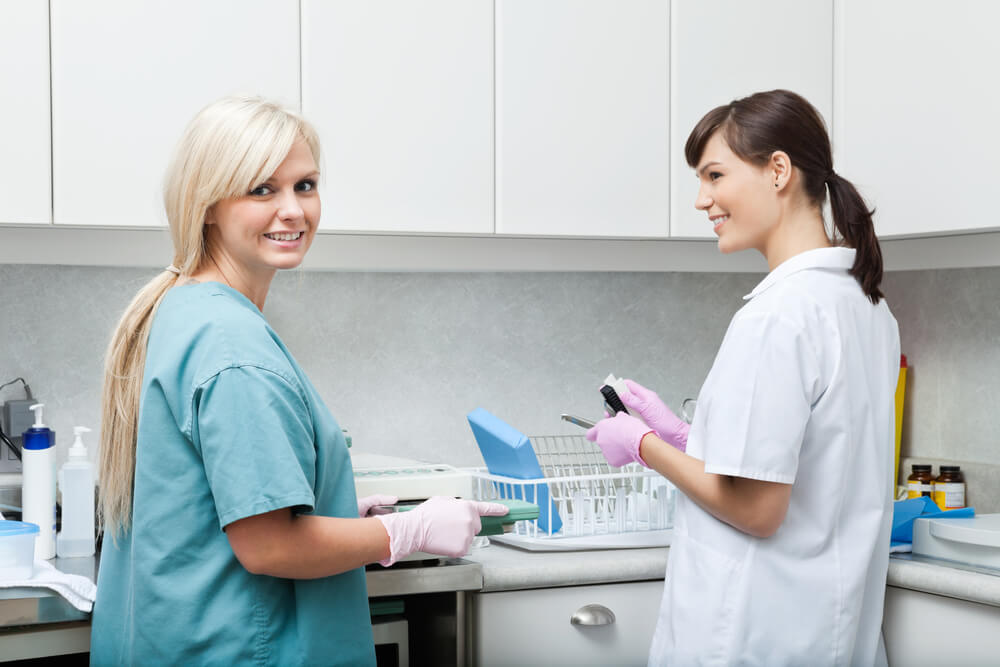
Unlocking Safety: The Autoclaving Procedure for Sterilization in Dentistry
The autoclaving procedure for sterilization is a cornerstone in maintaining rigorous hygiene standards in the dental world. Utilising high-pressure steam, this reliable technique is a defence line against harmful microorganisms, ensuring that all dental instruments...
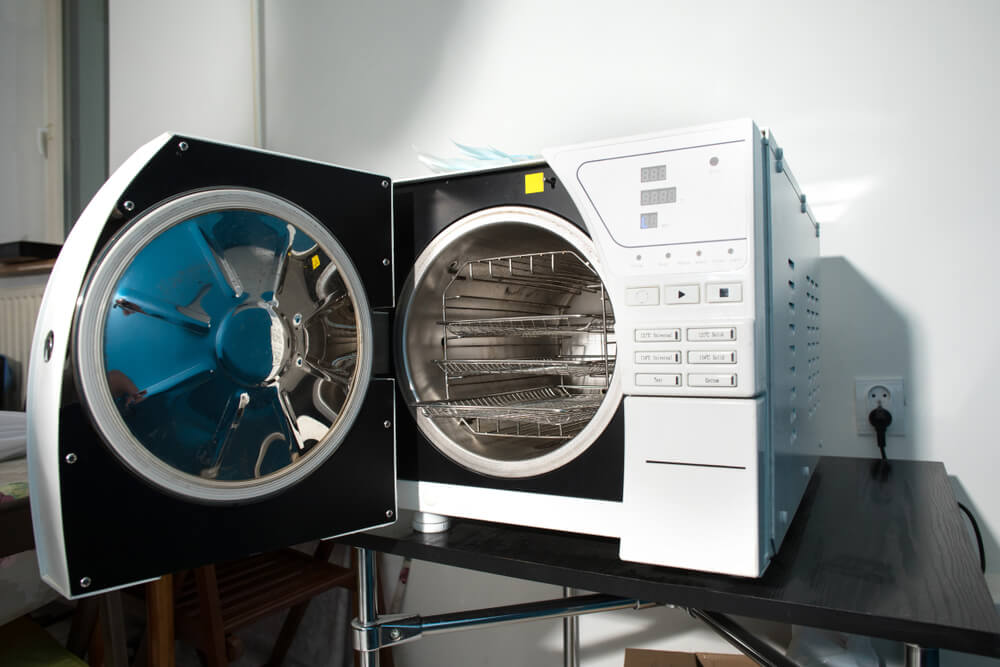
The Impact of Autoclave Temperature On Sterilization Effectiveness
Autoclaving is a vital process in various industries, including healthcare, biotechnology, and pharmaceuticals, that require stringent sterility. It utilises high-pressure steam to effectively eliminate microorganisms, such as bacteria, viruses, and spores, from...
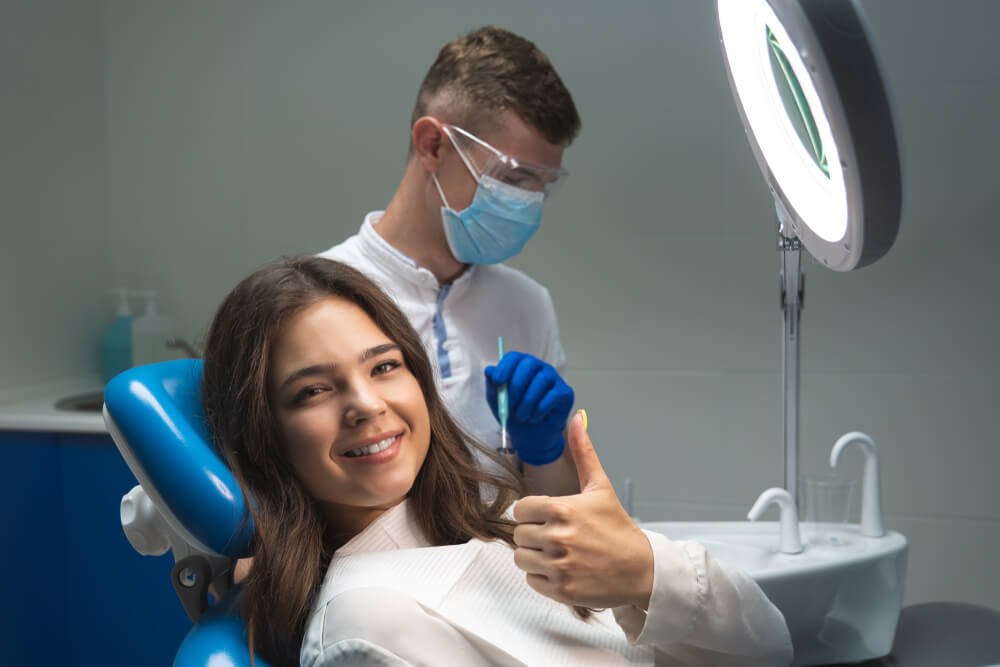
Who Sterilizes Surgical Instruments: An Inescapable Responsibility of Dental Personnel
When it comes to dentistry, the patient's safety and health are paramount. The sterilisation of surgical instruments is a critical aspect of dental care that cannot be ignored. A dental clinic must maintain hygiene and avoid contamination. Dental instruments used in...
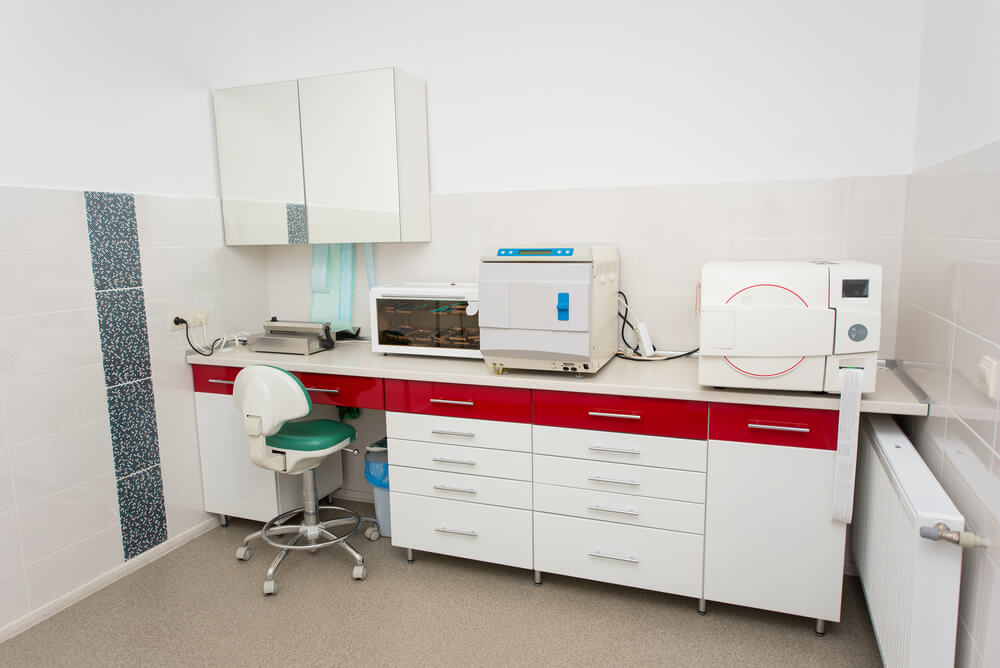
Process of Autoclaving in the Dental Setting
Autoclaving is a vital operation in the dental field that assists with creating and sustaining a secure, sterile atmosphere for practitioners and patients alike. This method utilizes high-temperature steam to annihilate any potential contaminants, uphold excellent...
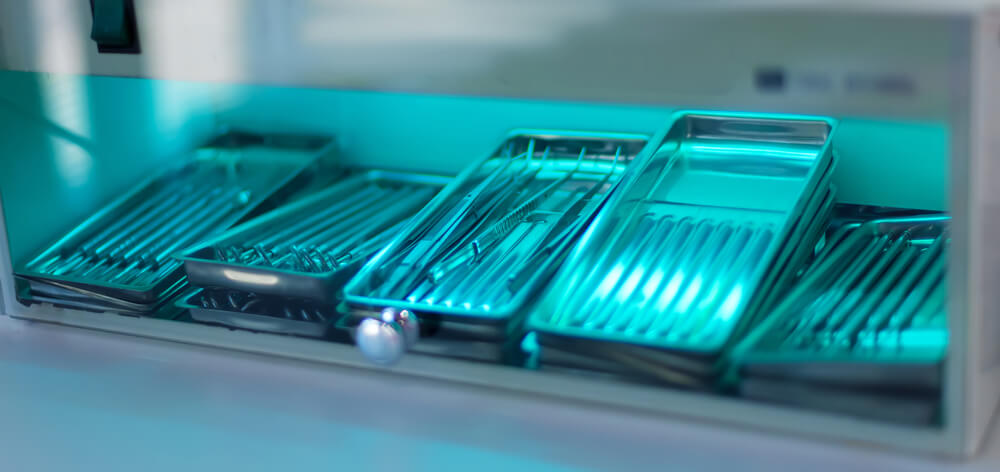
What Is The Difference Between Disinfection And Sterilisation?
Dentistry is a meticulous field, so it is essential to understand the answer to the question, 'what is the difference between disinfection and sterilisation?' This is to ensure appropriate patient care and prevent the spread of infection. While both processes are...
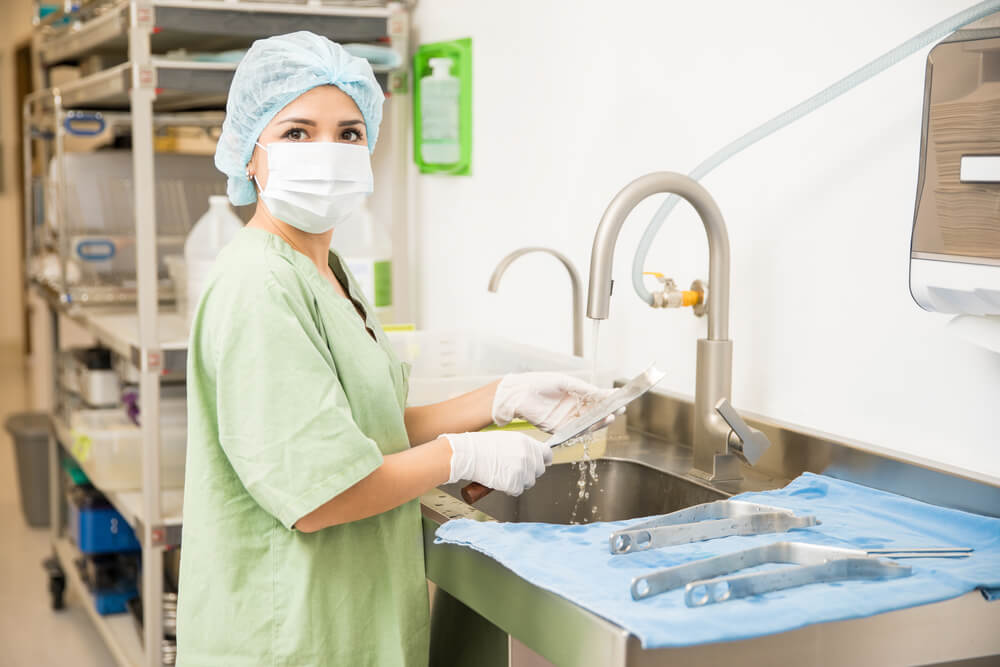
Dental Instrument Sanitation: How Experts Do It
If you or your child has ever been to the dentist, you know that dentists and their staff take great care to ensure everything is clean. But what about the instruments they use? Are they spotless, and are they being sterilised? In light of the current circumstances,...
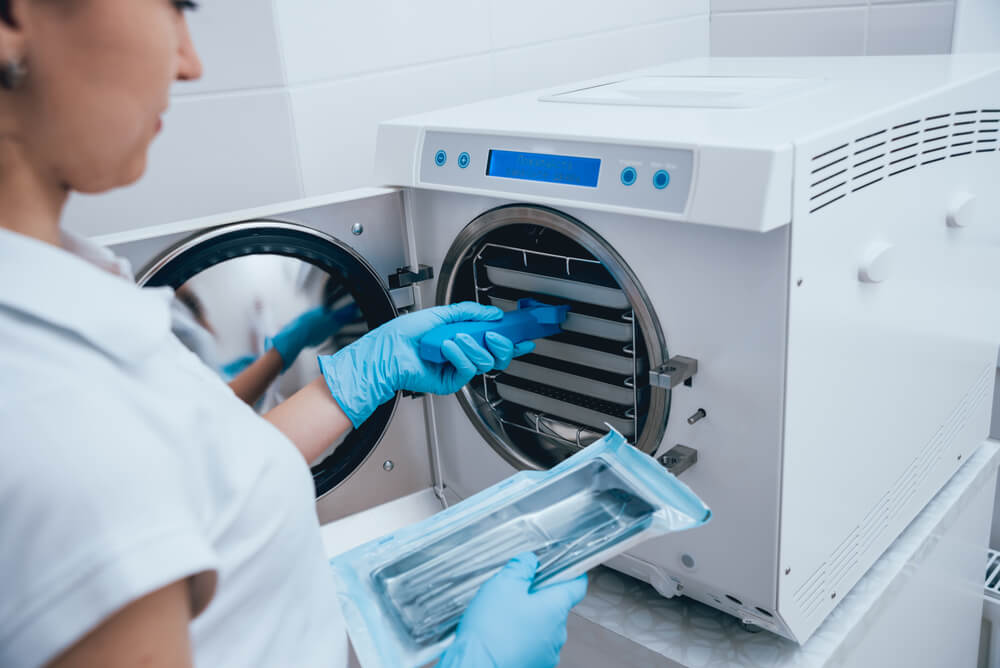
Importance of Sterilization Of Surgical Instruments
When visiting a dental office, it is essential to ensure that you receive the highest care standard. One aspect of this care is sterilisation, which is essential to any dental visit. Sterilisation ensures that all instruments and equipment used during a procedure are...
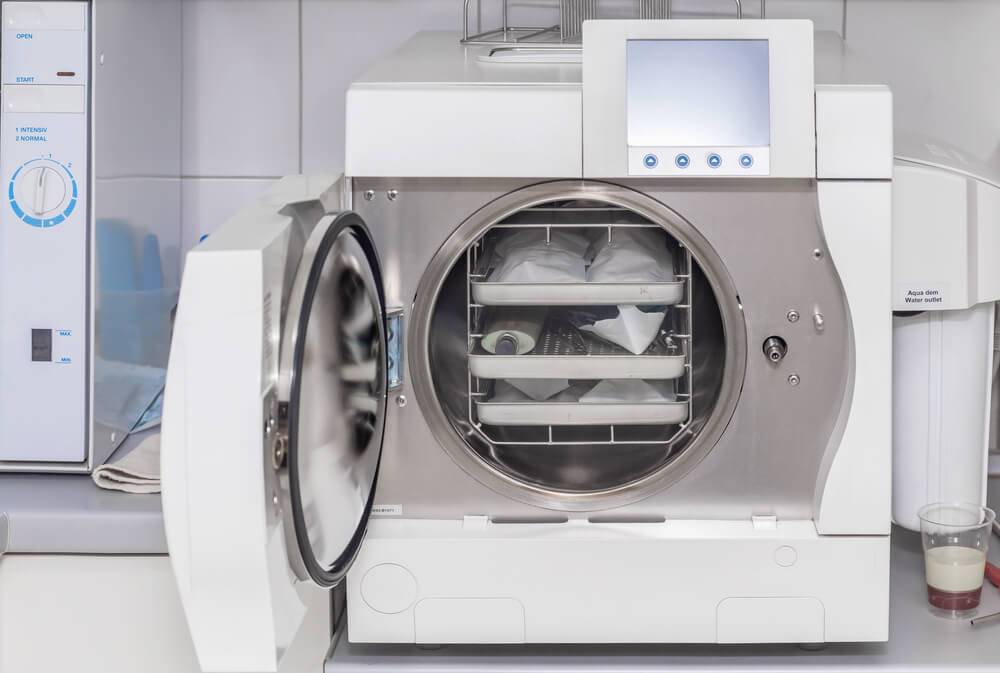
Moist Heat Sterilisation: What Is It and Why Is It Important?
If you are a medical or dental practitioner who owns a clinic, then you know the importance of sterilisation. This process is key to preventing the spread of infection and keeping both your patients and employees safe. This blog post will discuss moist heat...
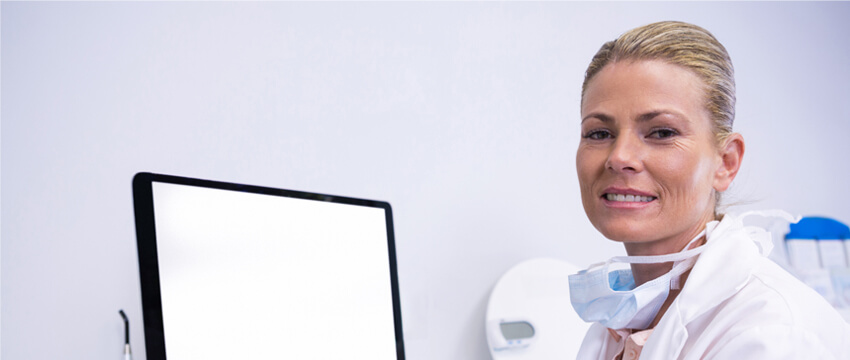
Sterile Dental Instruments — Why It Matters To Patients & Dentists?
If you've ever had a dental procedure, you may have noticed that your dentist used sterile dental instruments. You might be wondering why this is so important in dental medicine. This blog post will discuss the importance of using sterile dental instruments and why it...
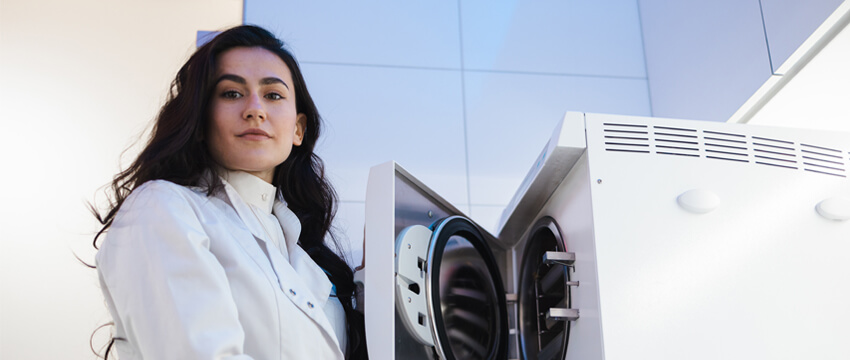
Dental Sanitation Products — Keeping Your Teeth Clean and Healthy
Keeping your teeth clean and healthy is essential for your overall health. Did you know that dental sanitation products are available to help you do this? These products can help remove plaque and bacteria from your teeth and keep them healthy and sparkling! In this...
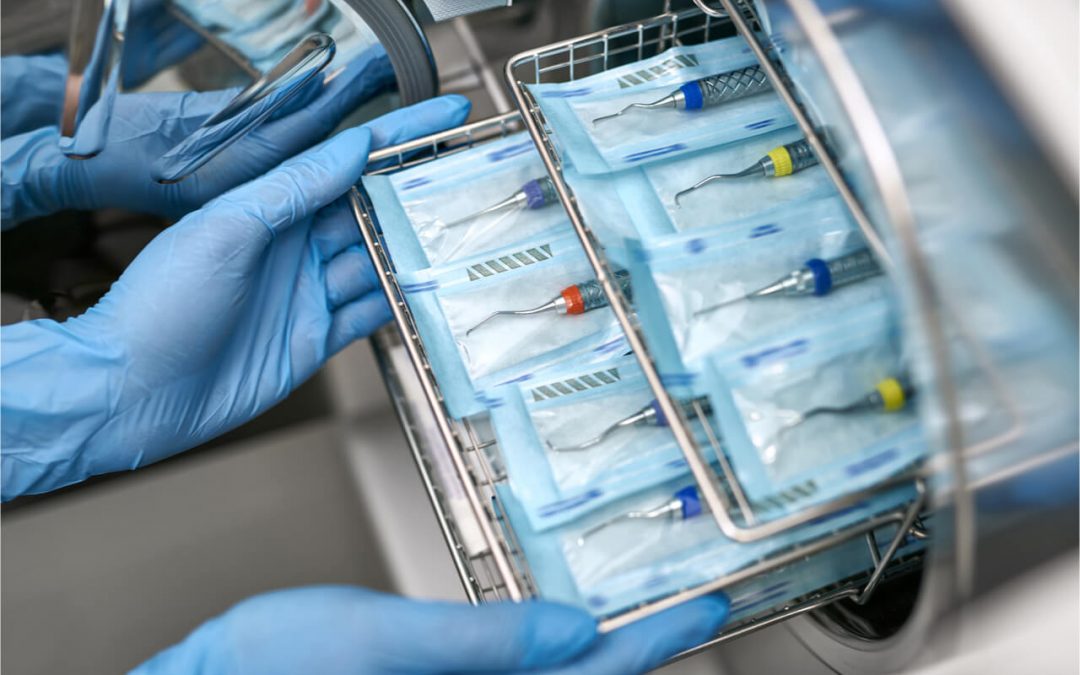
Dental Sterilisation: How To Prepare Instruments For Autoclave
It is critical to follow the right autoclave sterilisation processes. The system fails if protocols are not observed at all times, and everyone's health and safety are jeopardised. Autoclaves are used to sterilise various items, not simply medical equipment, as you...
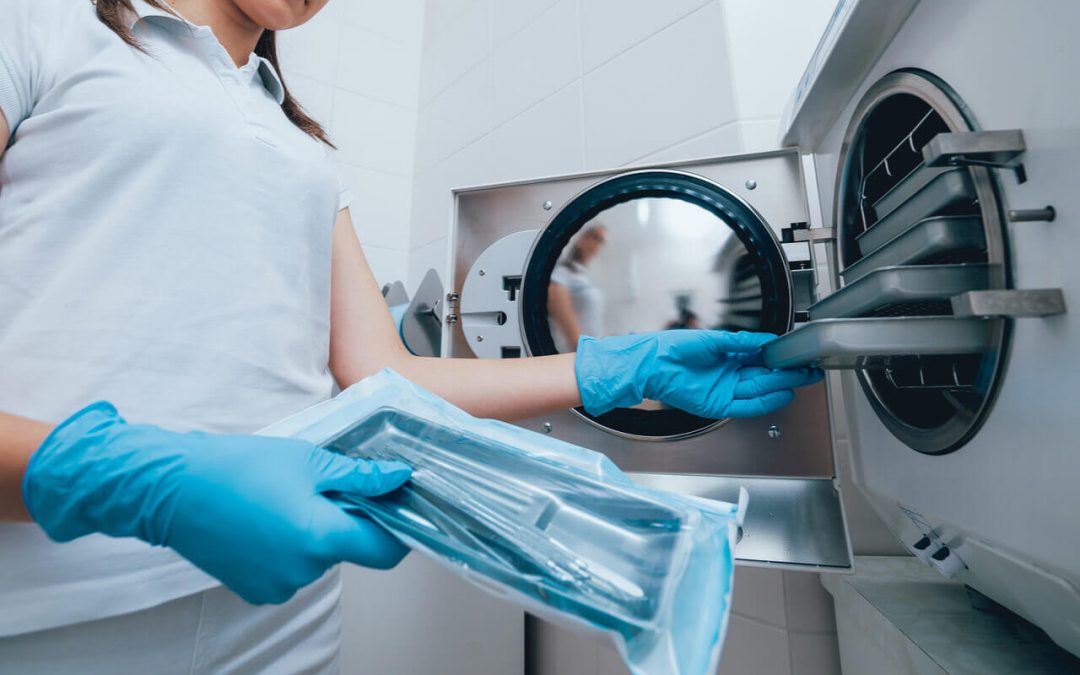
N, S, or B Class Autoclave: Tips on How to Choose Your Dental Practice’s Steam Steriliser
The autoclave is a device used to sterilise reusable medical or dental tools. We distinguish three classes of autoclaves: N, S and B. How do they differ from each other, what is their purpose, and what autoclave should you choose to suit the type of services your...
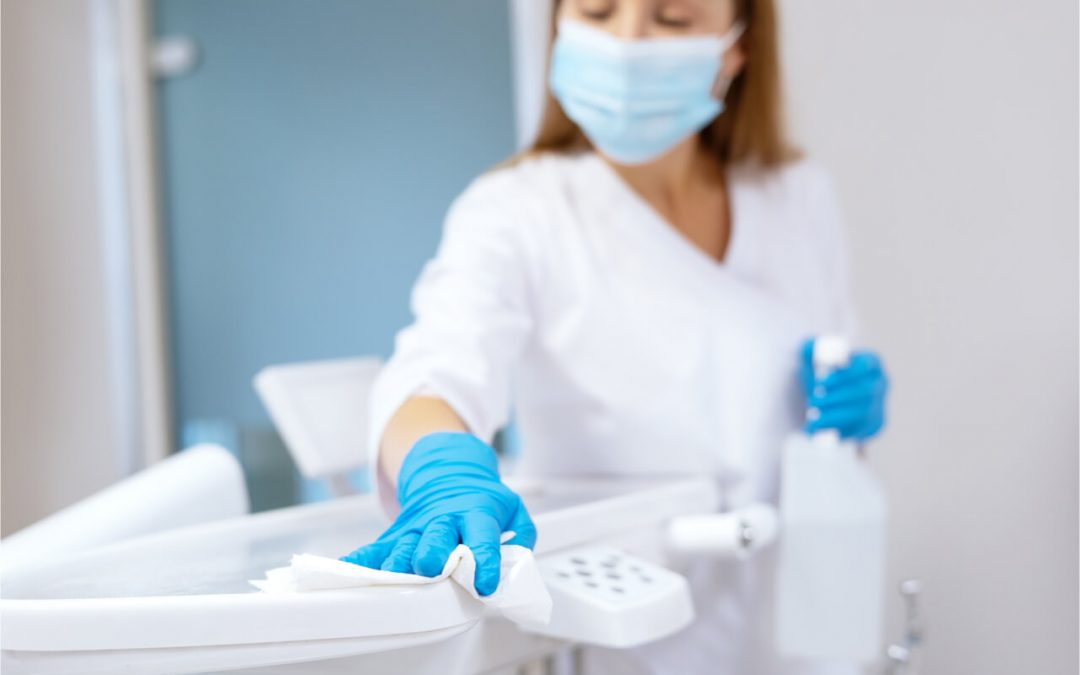
Dental Sterilisation Protocol: What Your Clinic Should Practice
The health and safety of patients when visiting a dental clinic should be a primary concern for dental practice owners. Patients should have the assurance that when getting professional dental care, proper controls and precautions for cleaning dental instruments and...
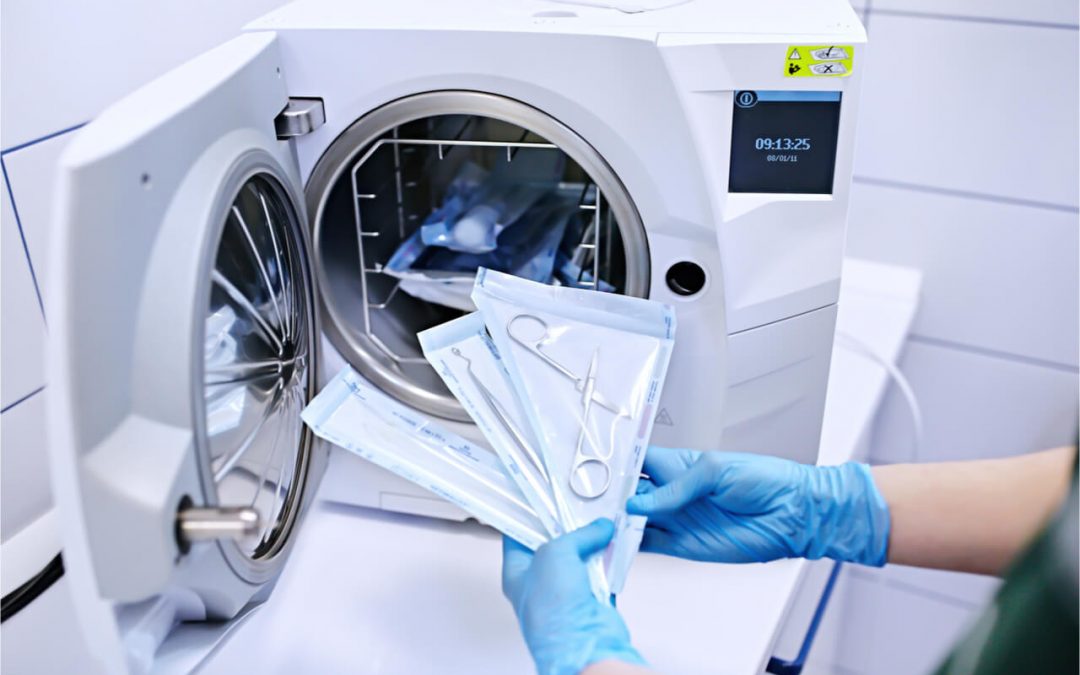
Dental Sterilizer Machine: How Do Dentists Use it During the COVID-19 Pandemic?
Now more than ever, it is important to practice excellent hygiene to avoid both COVID-19 and other bugs. Many patients have concerns about their dentist's cleanliness and sterilization procedures, which are amplified during the COVID-19 outbreak. First and foremost,...
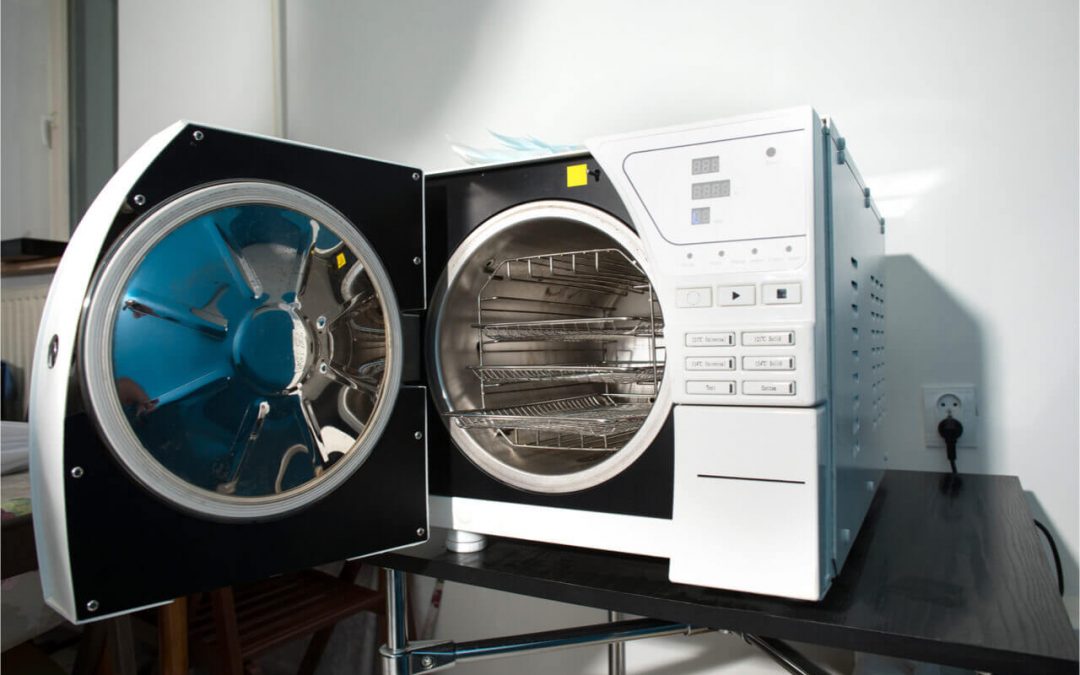
Autoclave Machine: How to Choose for your Dental Clinic
When you go to your dentist for a dental procedure, having the assurance that the dental instruments and tools that would be used in your mouth are sterilised is in fact a no-brainer. So how do you think your dentist does it? Well, sterilising instruments is made...
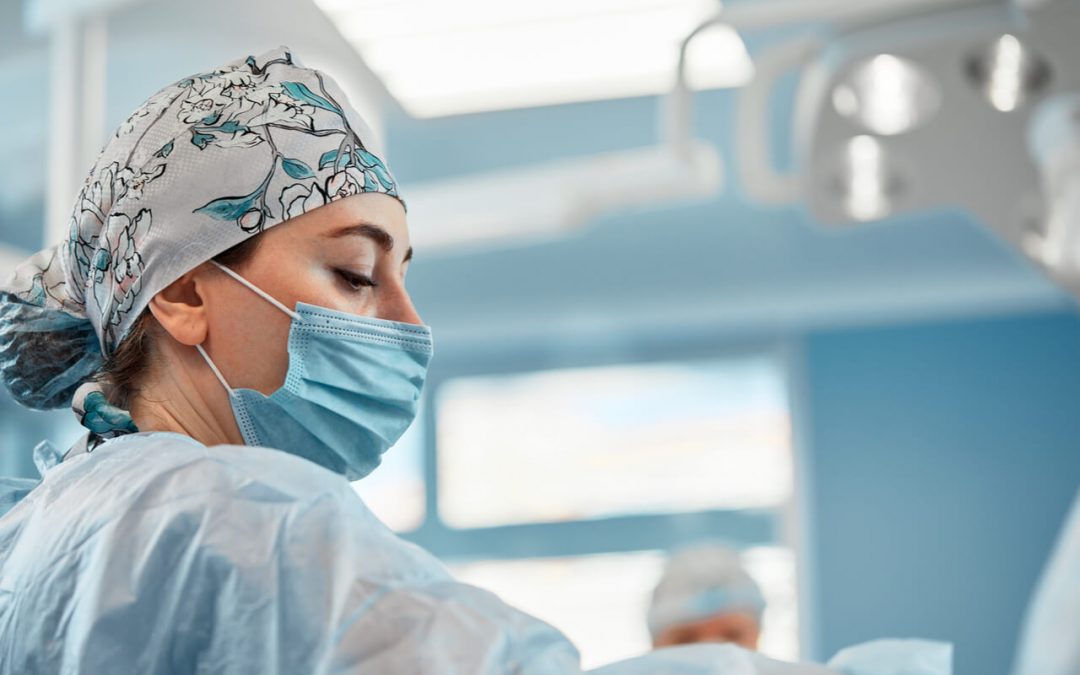
How to Perform Sterile Technique: Importance and the Best Way To Do It
Sterile technique is an essential skill that all health care providers should know. Whether you are a medical student, nurse, physician assistant, or other healthcare provider, properly performing sterile techniques is indispensable for any clinician. In fact, it is an essential element in performing surgery and one of the most complicated since it involves many steps and safety precautions. This blog post will discuss what sterile technique is, why it’s so important, and perform the best sterile techniques possible.
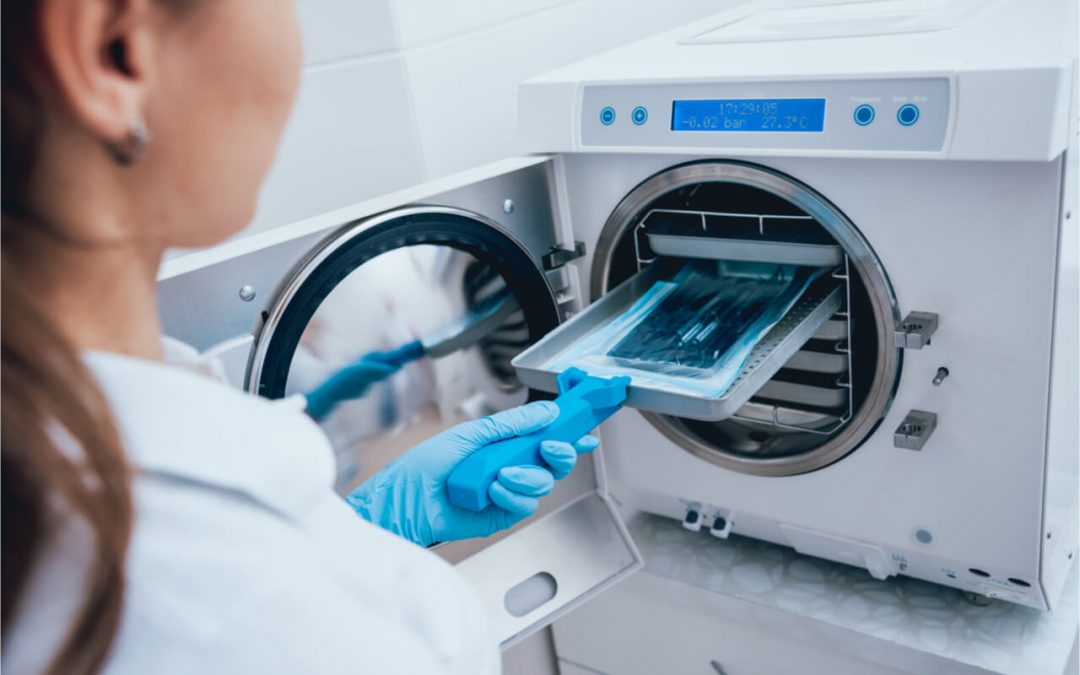
Autoclave For Sale: The Right Tool For Your Practice!
Are you looking for a high-quality and affordable autoclave for sale? If so, you are on the right page! Autoclave machine is one of the necessary equipment in the healthcare industry. In fact, we will discuss in this article the importance of sterilisation in medical and dental practice, along with the five best autoclaves that you can get at a very reasonable price!
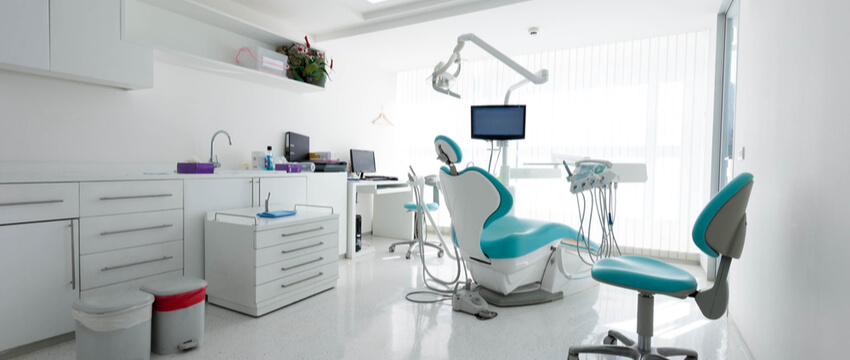
Aseptic Vs Sterile Environment: What a Dental Clinic Should Be
Many people confuse the terms “aseptic” with “sterile.” Although they both have the same goal in mind—to eliminate or reduce potentially dangerous microorganisms—they have critical distinctions in clean rooms and pharmaceutical environments. As widely used contamination-control methods, all healthcare personnel considers both as conceptually distinct.
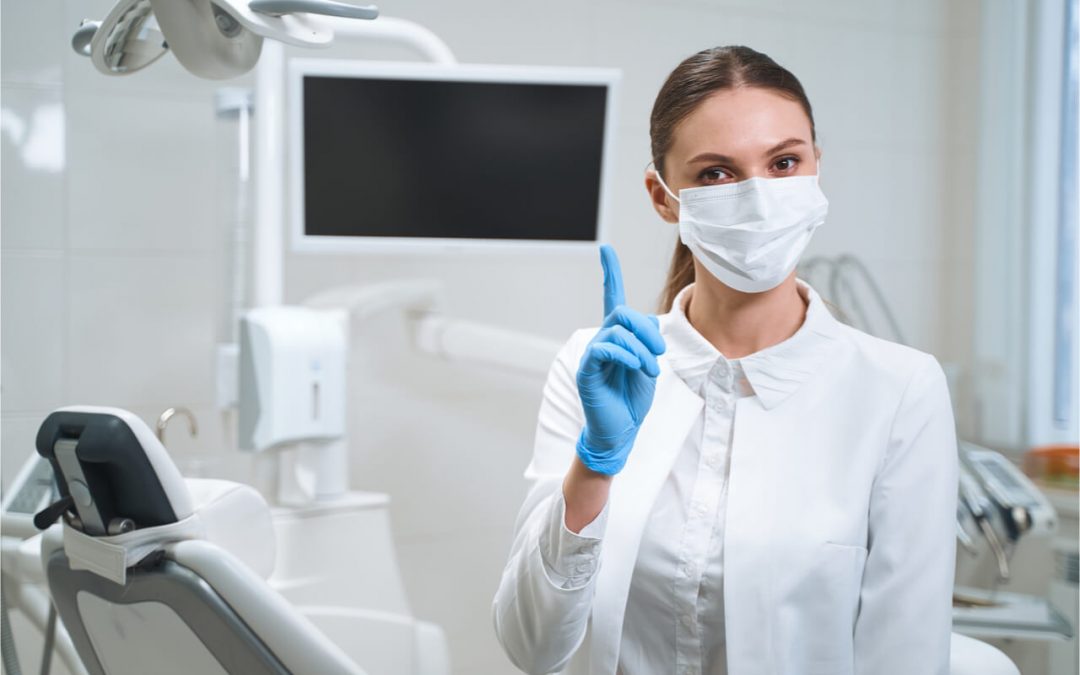
Why Is Heat An Effective Means Of Sterilization? What To Know?
The steam or heat method is the most widely used and the most dependable technique available for sterilization. As achieved in an autoclave device, the main principle of this method is to put every item through steam contact at the required heat for a particular time. So, why is heat an effective means of sterilization? Why is the autoclave device the most used for healthcare and industrial applications? Read on to learn more about heat sterilization and the importance of autoclave machines in the medical field.
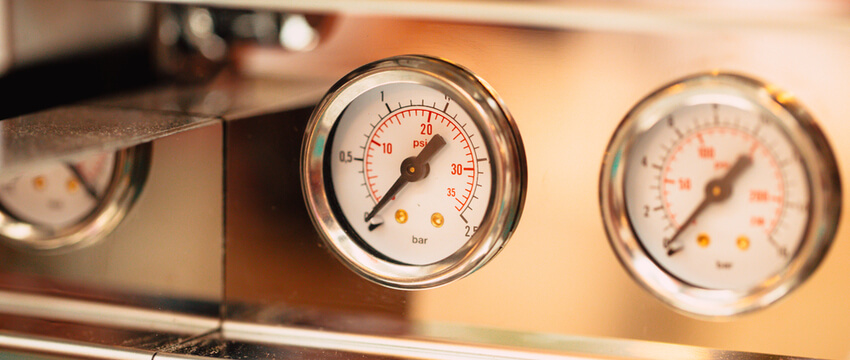
Dental Sterilisation: Why Is Pressure Used In An Autoclave?
If you frequent your dentist’s office because you value your dental health as important as your medical well-being, you may have noticed that his clinic has many high-tech-looking machines and equipment. Air compressor, high-end dental chair, UV steriliser, and yes, a dental autoclave. The machines formerly mentioned may easily be explained when asked about their use and function, but what about the autoclave? Why is pressure used in an Autoclave? How does it work and what is it for?
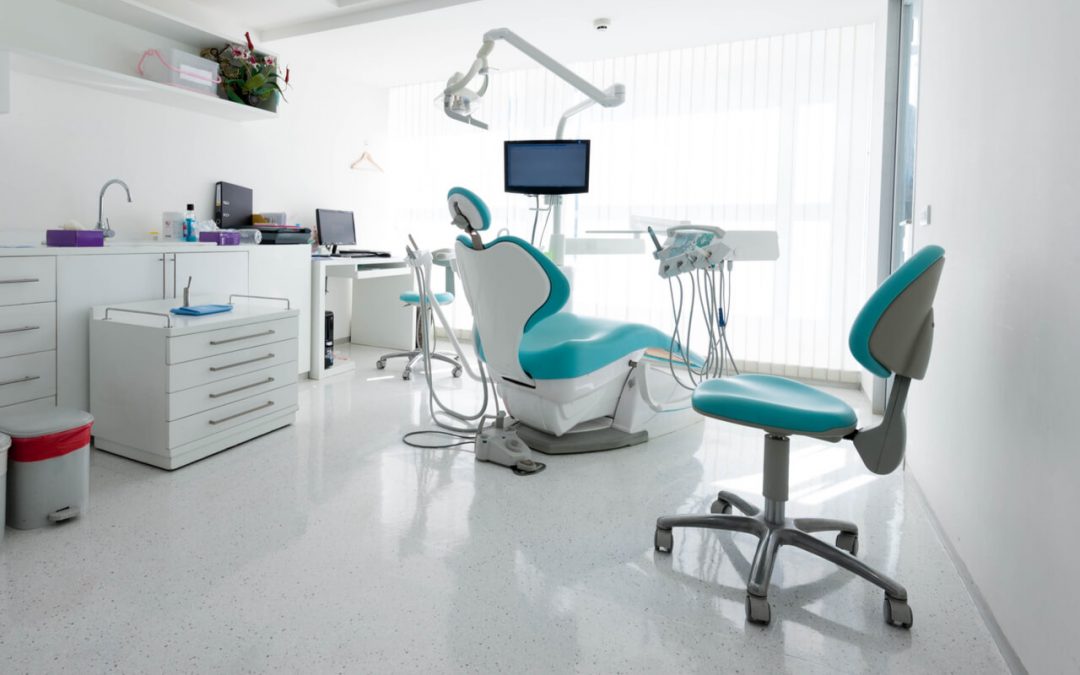
Dental Equipment Repair And Maintenance Guide 101
To guarantee the safety of patients and employees, it is critical to keep dental tools and equipment sterilised and in good working order. However, let’s face the facts. Proper dental equipment repair and maintenance means performing essential tasks on a timely basis. As a part of the dental care team, it is necessary to be well-equipped with the right tools. Additional knowledge on how to disinfect, clean, and prolong the lifespan of various dental equipment are also helpful. Most of these tasks are time-consuming. Therefore, a preventive maintenance guide can help ensure that important chores aren’t overlooked or completed late.
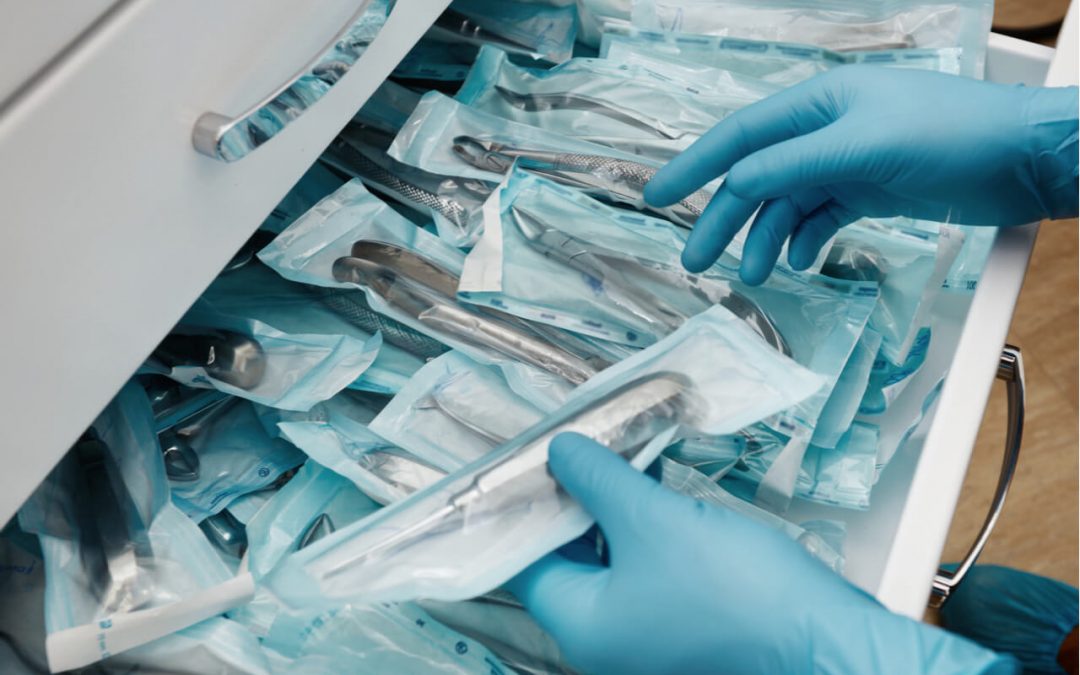
Quality Medical Supply And Its Importance In Healthcare
Suppose you want to establish valuable services trusted by patients. In that case, you should make sure that your clinic is well-equipped with high-quality medical supplies. Aside from maintaining patient safety, your medical equipment is a clear indicator of how you practice your expertise. In addition, having a quality medical supply plays a huge role in preventing complications caused by inaccurate readings or results.
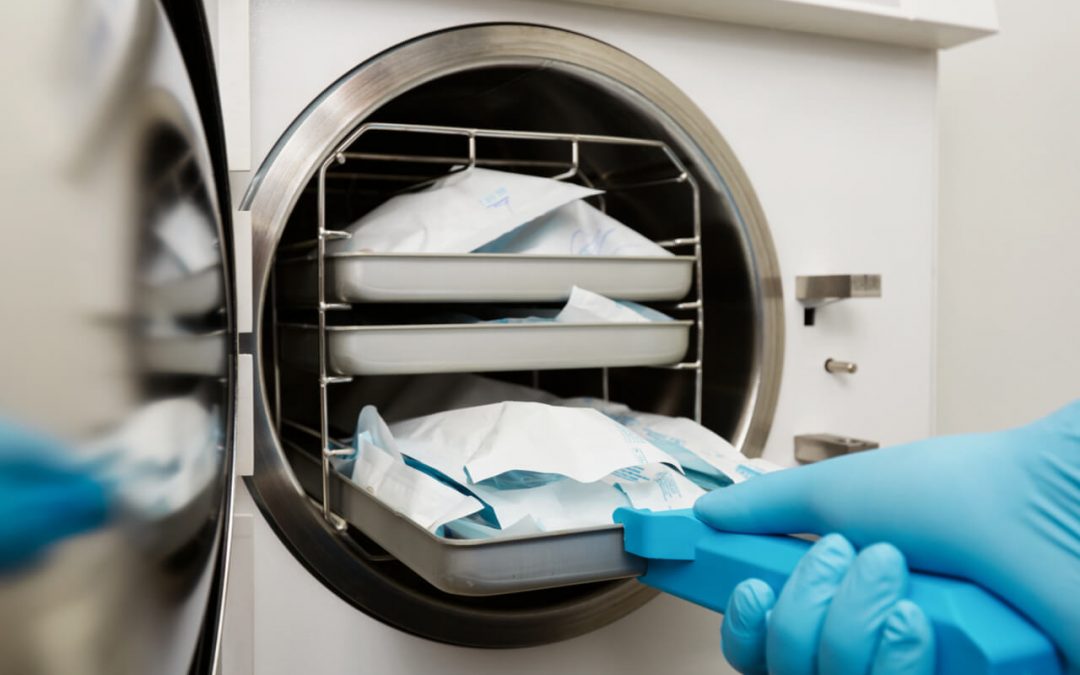
Australian Sterilisation Standards: Response of Dental Associations
Infection control is a significant responsibility in every medical, dental, and healthcare practices. As a vital aspect in treatment and mitigation, proper sterilisation for surgical instruments and dental appliances are necessary. This challenge has led the way towards the creation of a centralised guideline to harmonise sterilisation procedures. To maintain hygienic practices in dentistry, dental associations adopt the Australian Sterilisation Standards as a part of their practice.
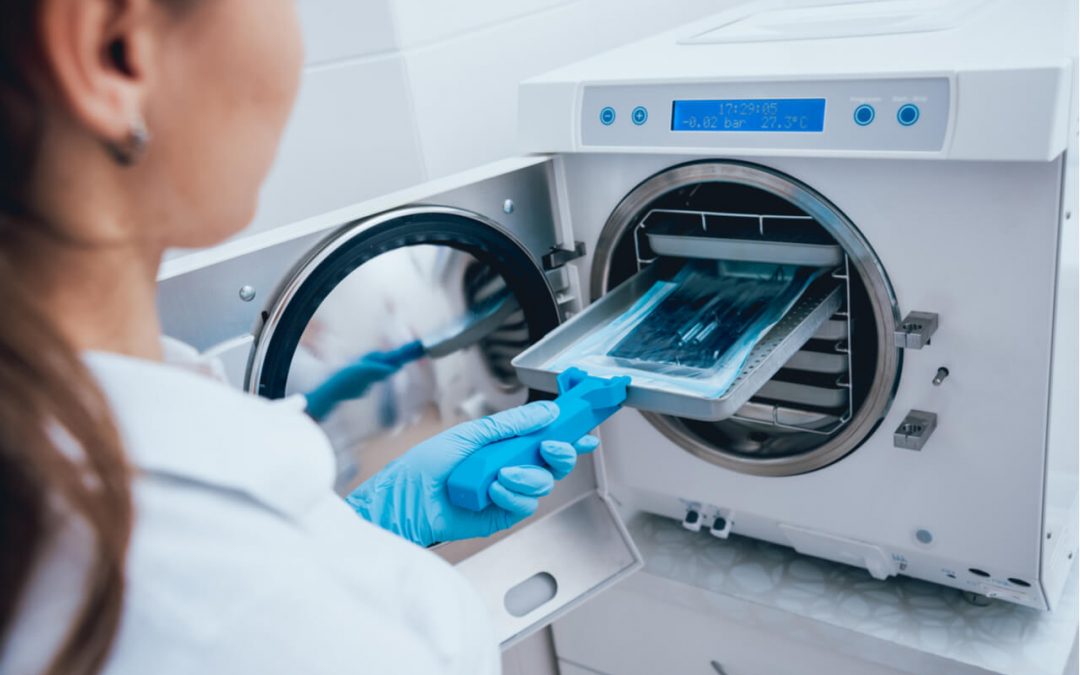
Why Is Medical Sterilization Equipment Crucial For Practitioners and Patients?
Healthcare organizations, including hospitals, dental clinics, and rehabilitation facilities, are among the most critical areas where patients are at a high possibility of spreading diseases and infections. That said, improper sterilization of medical devices and instruments poses significant risks.
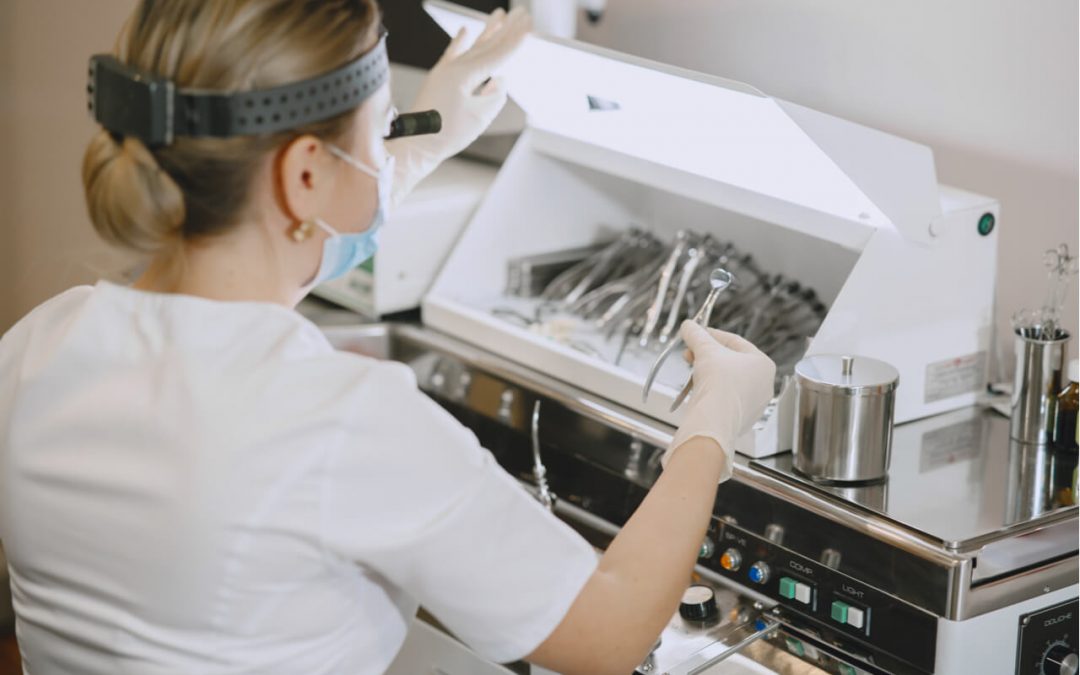
Hospital Autoclave: Why It Is Important To Keep Your Facility Sterilised
Whether you are working in the medical field or not, it should be no surprise how sterilisation comes critical within the hospital environment. Medical equipment and tools are vital for all parties, from medical practitioners up to the patients. It is a standard duty of the medical care professionals to ensure that all medical tools are well-sterilised and fail-free.
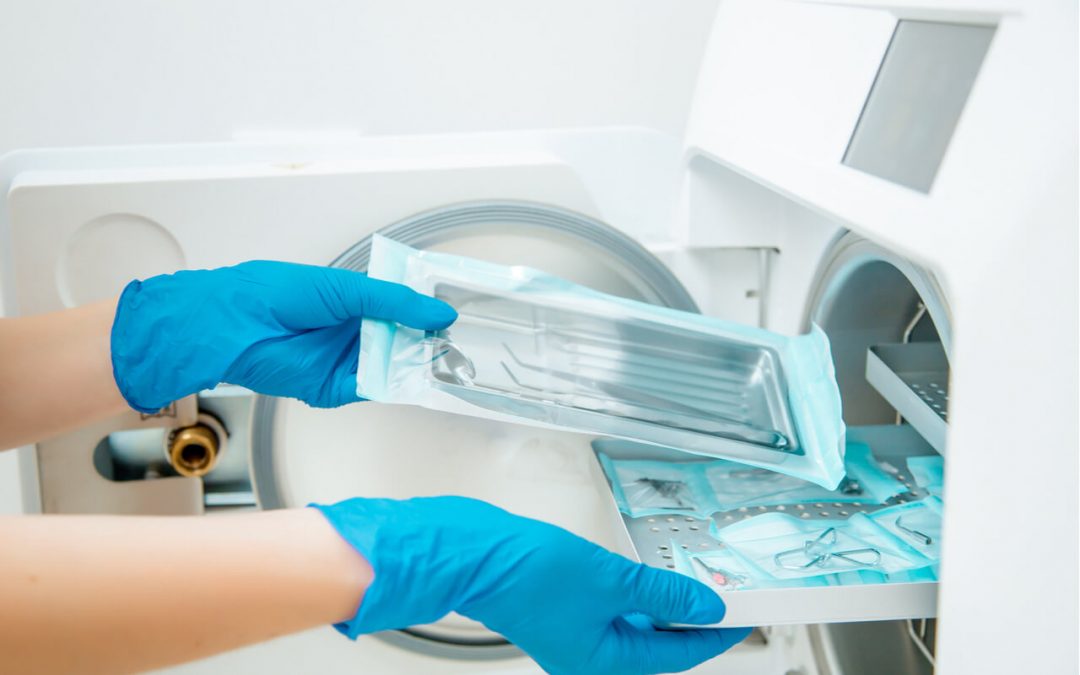
Using a Laboratory Autoclave: Sterilising Your Tools For Safer Procedures
In this article, we will discuss and explore the importance of sterilising instruments and how a laboratory autoclave is essential in dental practise.
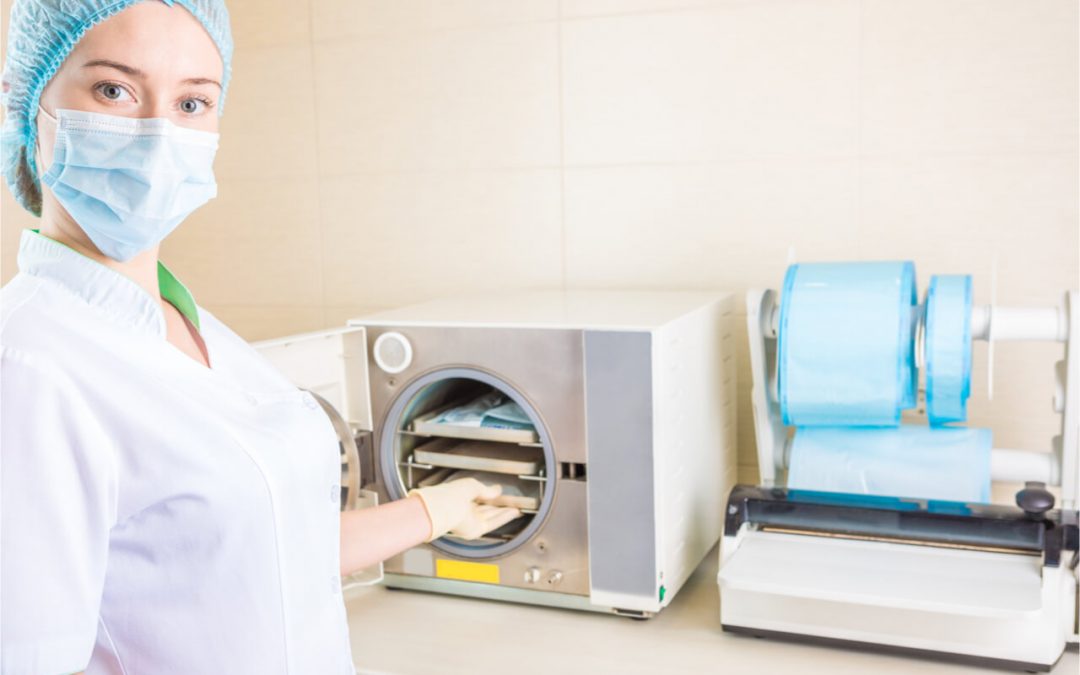
3 Types Of Dental Autoclave (How To Choose The Best)
Dental autoclaves have been around for quite a while. While ordinary people won’t know the purpose of a dental autoclave, it has helped the dental industry to become a reliable partner in healthcare.
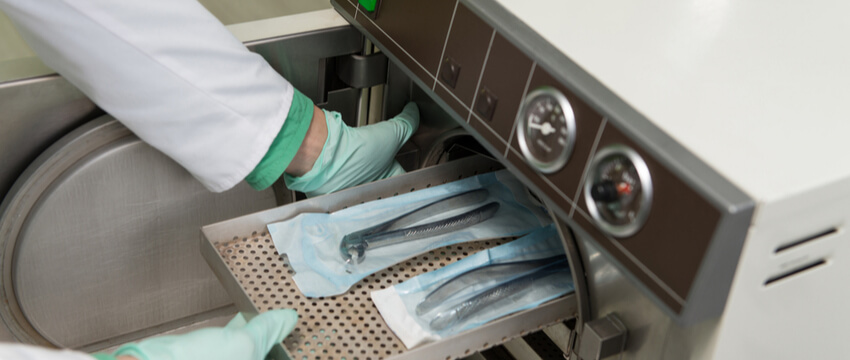
How Does A Steam Steriliser Make Medical Tools Safer?
The microbes are more challenging, and the contact is more direct, especially during dental procedures. Fortunately, there is a machine that addresses this problem. The steam steriliser or autoclave comes in different designs and look.
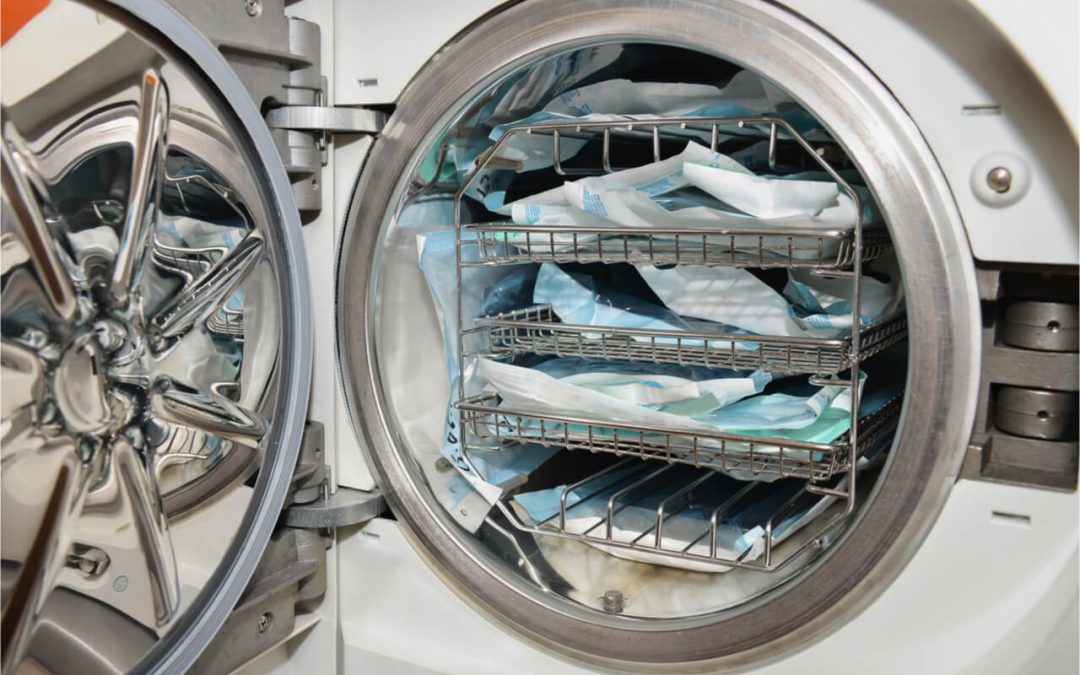
Autoclave Price: Within Standard Quality
Different industrial fields, such as hospitals, laboratory or dental clinics, can use an autoclave. WHat is the price for an autoclave?
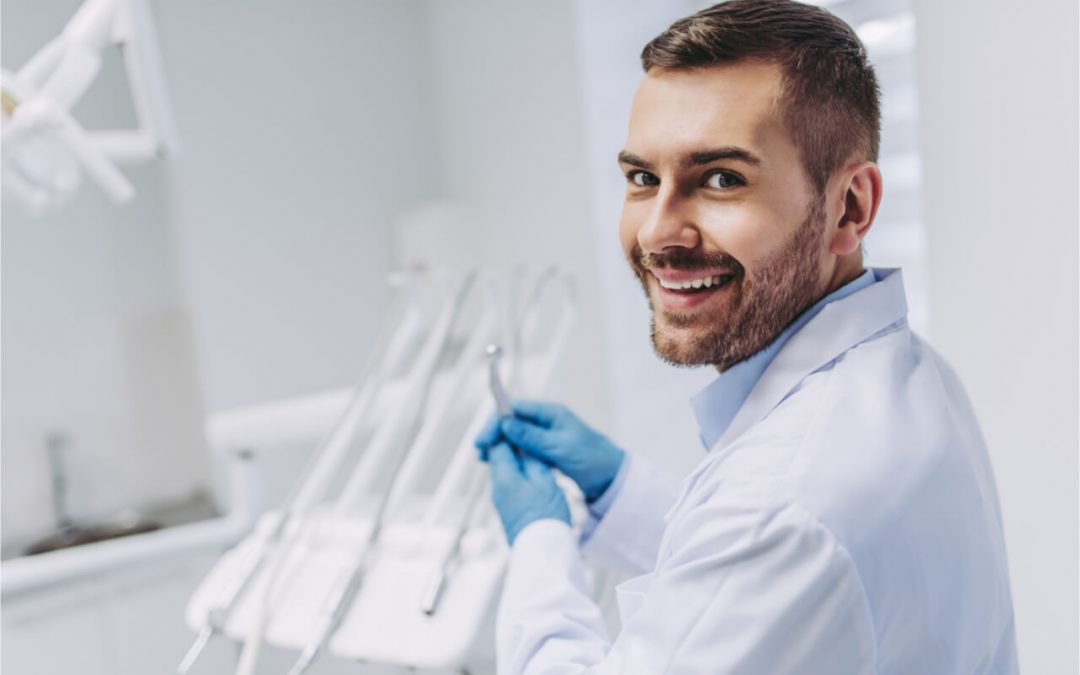
Is It Crucial Sterilising And Disinfecting Tools Like A Dental Drill?
Instruments like a dental drill or dental handpiece, scaler, mirror, suction device, and more are vital for an everyday dental practice. Among these daily machines, tools, instruments, and equipment in a dental office, it is a professional’s practice to control and eliminate bacterial, viral and fungal infection for the team and their patients. Hence, when a dentist performs teeth cleaning, root canal therapy, surgery, and other dentistry concerns ensure the high – quality service that you can give by disinfecting and sterilizing your dental drill.

The Importance Of Using A Dentist Autoclave(For Sterilization)
What is a dentist autoclave? How is it used in a dental clinic? This article aims to shed some light as to the role of a dentist autoclave in a dental practice and why it is crucial that every dental clinic has one.

How Do Autoclave Machines Work To Sterilize Dental Tools?
Have you ever wondered how dental equipment and tools get cleaned? How are they prepped and how do dentists know that they are ready for use for the next patient? This article will shed some light on autoclave machines and their importance in the dental industry.
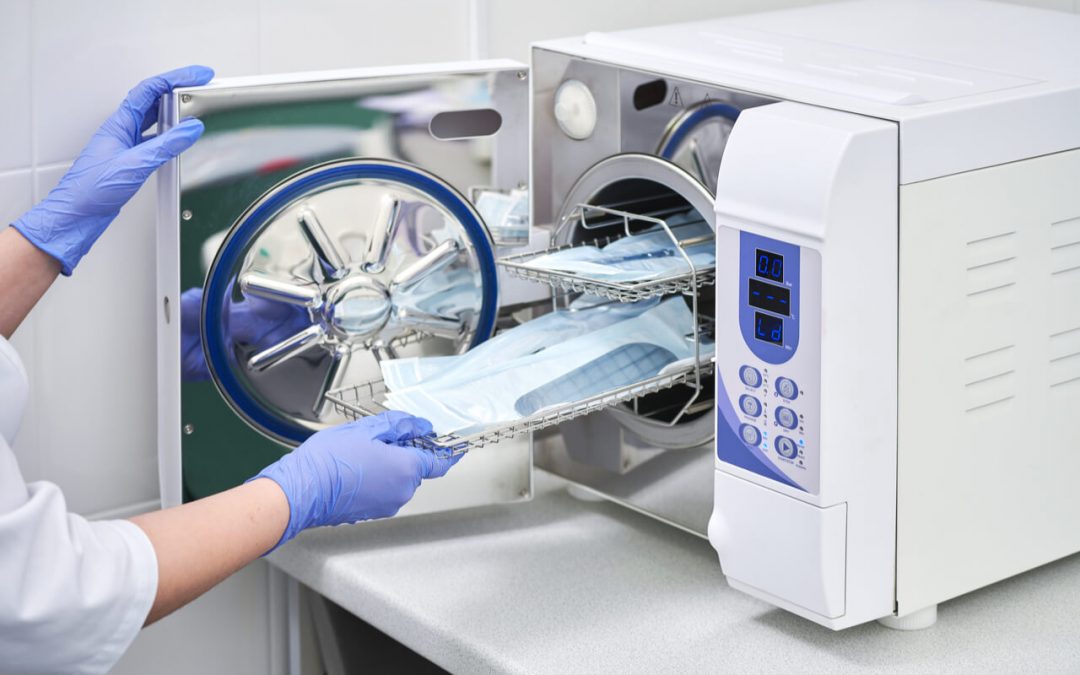
How Does An Autoclave Steam Sterilizer Work To Clean Dental Tools?
Have you ever wondered how dental tools get cleaned? The medical devices used in the dental procedures at any dental clinic have to go through the sterilization process using an autoclave steam sterilizer. This article will shed some light as to the process involved and how these medical devices are cleaned using this type of sterilization method.
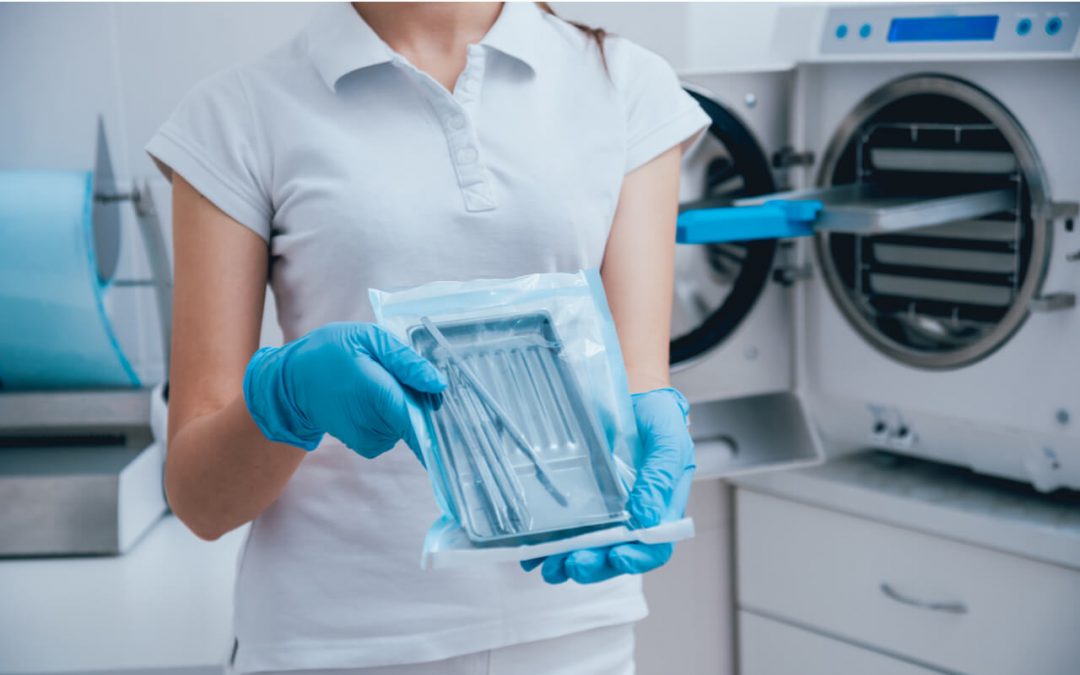
Autoclave Sterilizer (Why Dentists Should Use Them)
Making sure that all the tools and equipment in a dental clinic are disinfected and sanitized is crucial. How is this done? Soap and water are not nearly enough to make sure that all the bacteria and germs are removed from the equipment. A dentist’s best bet is to use an autoclave sterilizer.

5 Simple Steps On How To Use An Autoclave
The dental autoclave remains to be one of the most used equipment in the dental practice. However, there are still newbies or dental trainees and staff that need some assistance in working it. These machines like the MELAG Autoclave may have the same general procedures on how it works, but we still recommend everyone to rely on their specific equipment’s instruction manual. Not all autoclaves are the same, and each manufacturer should give you tips on how to use an autoclave to get its optimum use and efficacy.
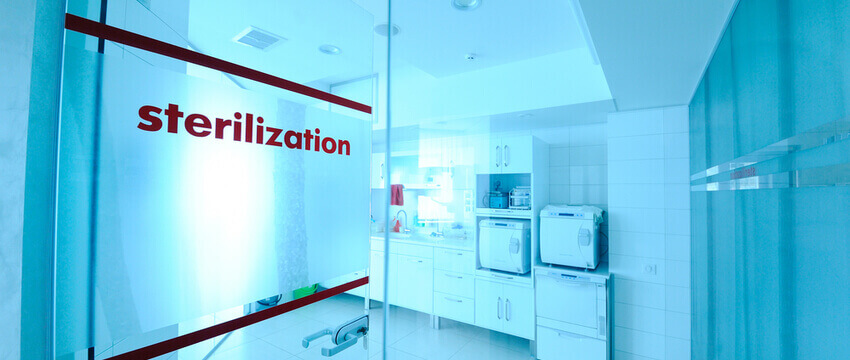
How Is Sterilisation In Dentistry Performed?
Sterilisation, in general, is the removal of all microbes and other germ particles from any type of equipment that has been in contact with any hazardous material. For instance, sterilisation in dentistry means all instruments and tools that the dentist used on any of his patients should be sterilised before using it on another patient. Even in hospitals, the high cost of medical equipment makes sterilising them an ideal method not just to destroy and kill disease-causing microbes, but it is also cost-effective in maintaining the integrity of their tools and equipment.
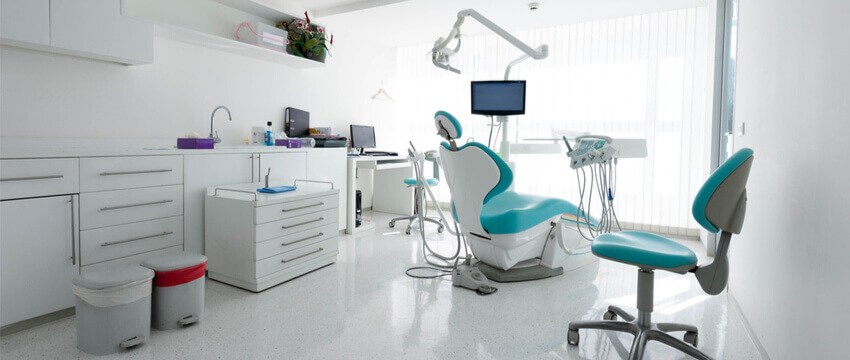
What Are The Dental Autoclave Sterilization Steps?
dental clinics and offices all over the world are required by their respective dental associations to have a dental autoclave. Let us discover what dental autoclave sterilization steps do dentists follow in order to make sure that every utensil or instrument they use on their patients is sanitised.

What Does An Autoclave Do? A Dental Guide
We at Melag Autoclave have, time and again, reiterated that any reliable dental clinic or office should have an autoclave in their practice. Why? Because an effective dental autoclave can keep your patients safe and streamline your sterilisation processes. But what does an autoclave do to ensure instrument sanitation and safety of the patients?
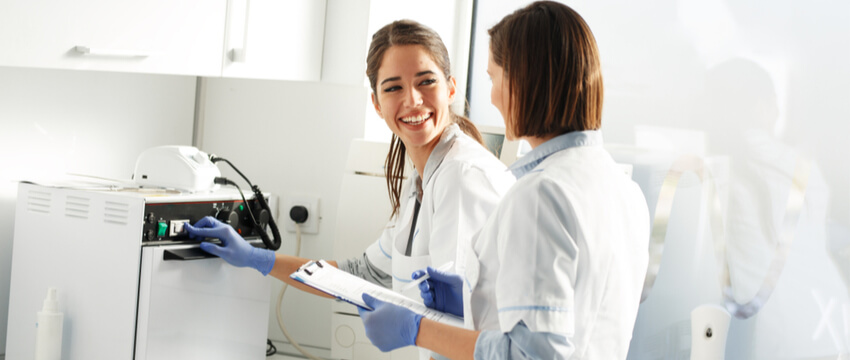
How Important Is Autoclave Sterilization Temperature And Time?
When we think of the instruments the dentists used to perform our dental procedures, have you ever wondered how they sterilise those things so other people can use it as well? And have you ever wondered if the instruments they used on us are even clean and clear from any contamination that can spread infection and whatnot? These thoughts are what make autoclaves important. Let us learn more about the significance of autoclave sterilization temperature and time when it comes to not just the dental setting, but all fields of health and safety that require sanitation.

